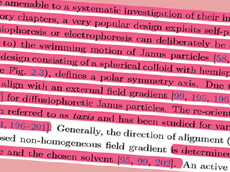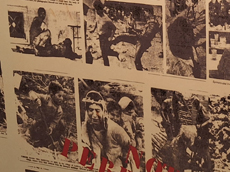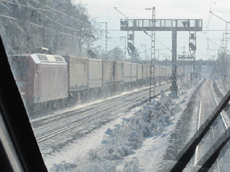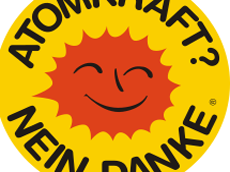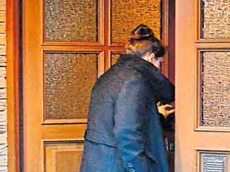
Welcome to "ansTageslicht.de": bringing facts to light
What we do:
This can be described in a single sentence: We document how people and media change the world.
Most of the time this happens just a little bit. But it works continuously. And that's why we want to motivate people to push everything forward in this way.
We document this connection, that people and media (can) change the world, with different examples:
- Stories that other journalists have researched and published. And who were awarded a "Wächterpreis der Tagespresse" (Guardian Prize of the Daily Press) for this.
- The importance and indispensable role of informants and whistleblowers.
- And also on the basis of our own stories and topics, which we research ourselves.
Most of the stories take place in Germany or other European countries. A part, however, also in Russia, because Russian students and young journalists had been involved in this project, formerly: people - media - democracy.
The individual locations worldwide you can find out via our world map.
"Stories"
is what we do. Or in what we 'package' our contents. Currently there are round about two hundred that have been created since 2004.
They are currently sorted by 30 topics. For example at the bottom or above here at Geschichten nach Themen.
The stories are also sorted according to whether they have received a "Wächterpreis der Tagespresse". Or if "Whistleblower" plays a role. But it can also be found on the world map or along the timeline of years, embedded in an annual chronicle. All accesses: always at the top - above the large picture that can be found on every page.
Please note: So far only a very small part of our topics and stories are in English. We prefer to translate our texts when it comes to the international problem of potentially contaminated cabin air, keywords: fume event or aerotoxic syndrome. You will find these areas at
and the actual blog "aerotoxic logbook" at
If we speak about us
"we": these are students from Germany and Russia, some journalists and a small crew of permanent people. More about us and about ansTageslicht.de can be found under more about us here right below. And in the imprint at the bottom of each page.
One of our current main topics: Sick through work. Or: A realm of shades works as cartel of silence.
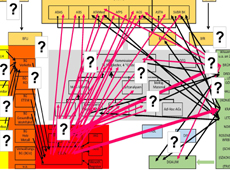
Those who fall ill are helped. This is the normal way. However, those who fall ill at the workplace are in bad hands. Help is only provided, if at all, after "proof of causality". In other words: the idea of a "Statutory Accident Insurance" ("Gesetzliche Unfallversicherung") for employees has meanwhile perverted itself into the opposite. The "occupational medicine" sector and the system of German statutory accident insurance ("DGUV") have built up a unique shadow empire - a cartel of secrecy: connections about the dangerousness of certain "hazardous substances" and their consequences for health are regularly denied. No matter whether it is asbestos, dioxin or mercury. This is also the case with Fume Events, which can take place on airplanes. The injured remain standing alone in the rain ...
- We brighten the cartel as a shadow realm: generally at www.ansTageslicht.de/krankdurcharbeit
- We have reconstructed why the problem of potentially contaminated cabin air in airplanes is not being addressed, although countless stewards and pilots have already become unfit to fly, i.e. unable to work, because of this at www.ansTageslicht.de/Kabinenluft. For that problem we provide an English version at www.ansTageslicht.de/cabinair.
- Those who have been interested, for example, in minimizing the dangers of asbestos - and have been doing so for decades - we have researched at www.ansTageslicht.de/Asbestkrimi.
- What one can do completely generally and completely concretely in cases, if it catches one, we arranged under www.ansTageslicht.de/WKMT (the abbreviation stands for what can one do?) and in English at What can You Do?
In addition to the problem of the occurance of contaminated cabin air you can get informed on actual developments at the Aerotoxic Logbook in English: www.ansTageslicht.de/ENATLB.
New regulations concerning data protection and private secrecy
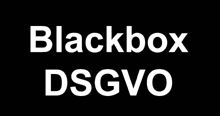
Because of the new basic data protection regulation, we have compiled a statement that explains how we handle data and what we cannot (and do not want) do.
Stories according topics
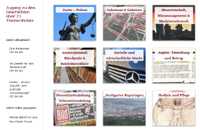
Organized by topic(s). Instead of less rough categories like "politics", "economy", "society" etc: here in currently 25 topic categories. Because many stories contain several aspects, they can also be called up by means of "tags" under other topics.
Stories awarded a "Wächterpreis"
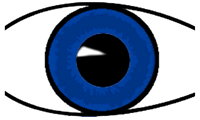
All stories that have been awarded a "Wächterpreis der Tagespresse" since 2003. It is one of the most prestigious and desired prizes for journalists who research hard and always stay on the ball. And publish consequently: without regard to names and persons, jobs or functions.
Whistleblowing - Whistleblower
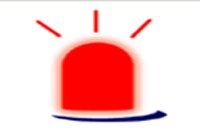
We document the stories of whistleblowers. Why they sound the alarm and what problems, grievances and wrongdoing, risks and injustices they point out. They are people who show courage. Because they are not protected in Germany and take high risks themselves - for the benefit of others or the general public.
Our World Map
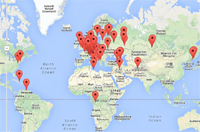
On the world map you will find everything geographically: by places and countries. But also listed by theme category. From Guantanamo (Cuba) in the west to Vladivostok (Russia) in the east.
Chronicle
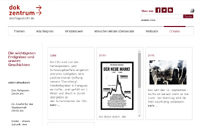
In the chronicle section we have linked the most important events of the world with our stories. Sorted by years. And according to other aspects
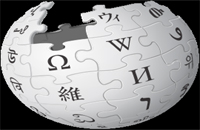
ansTageslicht.de and the WIKIPEDIA-project
We research first and then publish. With WIKIPEDIA it's the other way around: It relies on errors being corrected. If it happens. The DokZentrum ansTageslicht.de is not an anonymous source and therefore we are also responsible for our content in terms of press law - unlike WIKIPEDIA. There we were even on the "blacklist", as we had been told.
Read more
Current Stories
Here you can view our five most recent stories, which have recently gone online - in German (of course):
Online am: 10.01.2024 | Aktualisiert am: 11.01.2024
Plagiate an der Uni Leipzig: ein System?
Doktorarbeiten, die zu über 50% aus der wortwörtlichen Übernahme von Publikationen bestehen, an denen mehrere andere mitgeschrieben haben: Plagiate? Eine Doktorarbeit, die fast ausschließlich aus 11 Fachveröffentlichungen besteht, an denen insgesamt 14 Autoren beteiligt waren? Ohne dass erklärt wird, worin die eigene wissenschaftliche Leistung besteht? Die Uni Leipzig, die sich für ein Excellenz-Cluster bewerben will, hat jetzt ein Problem ...
weiterlesenOnline am: 13.12.2023 | Aktualisiert am: 14.12.2023
Terror gegen Israel
Terror ist durch nichts zu rechtfertigen. Weder mit der allein "richtigen" Religion oder blinder Hass gegenüber einer ethnischen Herkunft. Trotzdem ist dieses Phänomen weltweit präsent. Ein Land trifft es besonders. Und der Terror begann auf deutschem Boden. Vor 1945 und nach 1960.
weiterlesenOnline am: 20.10.2023 | Aktualisiert am: 22.10.2023
Über und unter der Erde: der visionäre Plan einer schnellen Eisenbahn durchs Ruhrgebiet. Und warum er scheiterte.
Visionäre, sprich nachhaltige Pläne lassen sich schwer durchsetzen, wenn die kartellierte Macht geballter Interessen dagegen hält, die sich einer solchen Herausforderung nicht stellen mögen. Deswegen wurde auch nichts aus der "Rheinisch-Westfälischen Städtebahn" zwischen Köln - Düsseldorf - Duisburg - Dortmund.
weiterlesenOnline am: 03.10.2023 | Aktualisiert am: 05.10.2023
Wie in Deutschland nach 1945 die Zivilgesellschaft entstand
Eine kleine Chronologie in 7 Zeitabschnitten: vom "Wirtschaftswunder" bis hin zu "Wir sind das Volk" im Jahr 1989: maßgebliche Akteure und Bürger, Veränderungen und Erfolge
weiterlesenOnline am: 03.08.2023 | Aktualisiert am: 15.09.2023
Skandaljugendamt Kreis Lippe: das Martyrium einer Mutter
Vermutlich eine alltägliche Geschichte wie bei vielen anderen Jugendamts-Behörden. Denn Beörden sind staatliche Monopole, die oft Eltern ihren eigenen Willen aufzuzwingen versuchen. Wie beim "Martyrium einer Mutter". Das Jugendamt geht dabei soweit, vor Gericht zu lügen.
weiterlesenThe structure of our stories
We do both: we document these stories and we look into the stories behind these stories. In concrete terms, we document,
- What circumstance gave rise to the story? How could the scandal become known?
- Who exactly is involved?
- How was the reporter able to get necessary information? What was the approach?
- What impact did the story? And of whom?
- How the story moved on? What is the current status?
- What is to be done when you have to handle a similar situation.
Each story always consists of a) several chapters and b) a regular introduction to a topic with a short description of what it is about. And what we have put online.
The most important - and therefore the most detailed - chapter is the chronology. In it everything is collected: from the very beginning. And until today.
And we'll show you what you can do yourself - for example, if you don't agree with a particular situation or grievance. And want to insist on change. Or at least want further information. You will find these chapters under the title What Can You Do, abbreviated WKMT in German ("Was kann man tun?").
Where to find us
On the Internet, of course. The domain name is also our program: www.ansTageslicht.de. (German), English: www.in2public.org.
The "DokZentrum ansTageslicht.de" is linked to various universities:
- The documaentation of the "Wächterpreis"-awards at the Macromedia University in Cologne, there with Prof. Dr. Marlis PRINZING.
- The Russian part of the "DokZentrum ansTageslicht.de", directly accessible at www.Menschen-Medien-Demokratie.de, will be run at both: University of Potsdam ("Interdisciplinary Russian Sudies" with Prof. Dr. Alexander WÖLL and Freie Universität Berlin ("International Center for Journalism) with Prof. Dr. Carola RICHTER.
- In the future, the subject of experts will be bundled at the University of Bielefeld, Faculty of Law.
You can write to us centrally via the email-adress redaktion[at]ansTageslicht.de.
And you also can find us on facebook: www.facebook.com/ansTageslicht.de.
Our partners
We cooperate with several partners:
- the Foundation "Freiheit der Presse", Bad Vilbel, which awards the "Wächterpreis of the Daily Press",
- the Whistleblower Network in Berlin - here among other things in our (partial) project Whistleblowing,
- up to now the Faculty of Journalism in Moscow, which has been part of Lomonosov University (Moscow State University) and the Free Russian - German Institute of Journalism (FRDIP). The stories that have emerged in this context can be found at Menschen-Medien-Demokratie (people, the media and democracy).
- And we work together with journalists and media, whose stories we reconstruct or rework with background.
- And of course with those people who are called informants or whistleblowers, when they give important information to the media or to us.
About us
In order to guarantee
- independency and
- its continuity as well as
- research & teaching
the "DokZentrum ansTageslicht.de" is linked to other universities - formerly Hamburg, now in Cologne, Berlin and Potsdam, Bielefeld.
What exactly we do, which ideas and goals guide us, how we organize this, you can find out under How we work: Wie wir arbeiten. And here is more about us: mehr über uns. We also explain why we consider WIKIPEDIA to be unreliable and actually not really necessary: Warum wir WIKIPEDIA für unzuverlässig und eigentlich für überflüssig halten. And that is not only because we are blacklisted at WIKIPEDIA. We do not know why.
Who is responsible for the project or parts of it and in terms of German Press Law you will see in the Imprint / Contact at the bottom of each site.
The names of the respective project participants can be found here under The participating and former students: Die beteiligten und ehemaligen Studenten.
If you want to give hints (e.g. on mistakes), have criticism, ideas or suggestions, please do not hesitate to contact us. We are very grateful for such information. The easiest and fastest way is via e-mail:
- either redaktion(at)ansTageslicht(dot)de
- or directly to the initiator of the project, Prof. Dr. Johannes LUDWIG: mail(at)johannesludwig(dot)de
You can also use these addresses if you want to receive our newsletter (once a month). And of course, if you would like to send us other information etc.
If you want to send us sensitive information, please read here first "How to communicate safely": Wie Sie sicher mit uns kommunizieren können.In addition to that we can assure you to be protected: Nobody and no institution can force us to reveal our sources.


